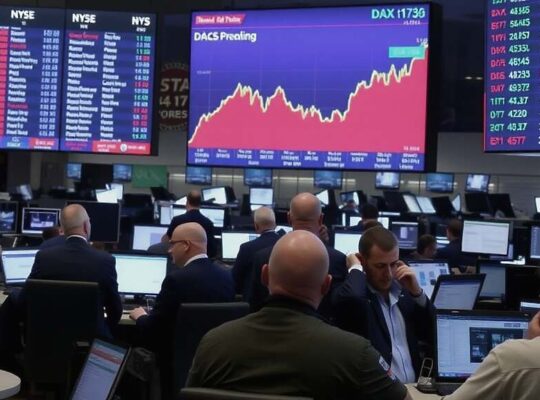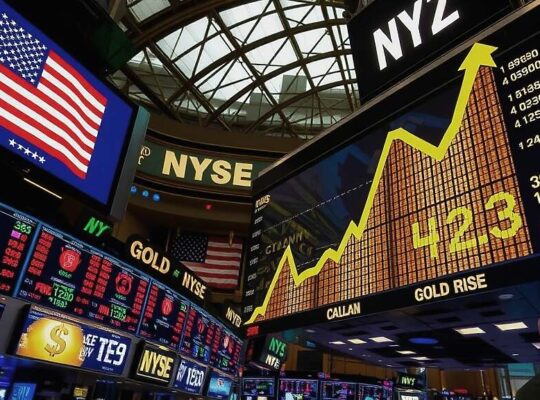The German DAX index opened Wednesday with modest gains, reflecting a prevailing sense of market relief fueled by signals emanating from the U.S. Federal Reserve. By 9:30 AM local time, the index stood at approximately 24,265 points, a marginal increase of 0.1% compared to the previous day’s closing value. Gains were led by BASF, Adidas and Airbus, while Rheinmetall, FMC and Siemens Energy lagged behind.
The market’s reaction underscores a concerning dependence on the “Fed Put” a term describing the Federal Reserve’s perceived willingness to intervene to stabilize financial markets during periods of volatility. According to Thomas Altmann of QC Partners, the market has grown accustomed to this intervention, anticipating Fed action when conditions become unfavorable. The widely anticipated October interest rate decision, priced in with near certainty before Federal Reserve Chair Jerome Powell’s recent address, saw a positive response stemming from the prospect of a slower pace of balance sheet reduction – essentially a slowing of the current quantitative tightening policy.
This reliance on the Fed’s actions presents a critical question for policymakers and investors alike. While providing short-term stability, it may also be fostering a complacency that obscures underlying economic realities and potentially delays necessary adjustments. The expectation of perpetual intervention risks distorting asset valuations and hindering sustainable growth.
Throughout the trading day, attention will remain fixed on Washington D.C., where the release of fresh inflation data is scheduled for the afternoon. These figures are expected to be pivotal in further shaping market sentiment and influencing the Federal Reserve’s future policy decisions. The data’s implications will be critical in determining whether the current inflationary pressures are genuinely easing or whether further intervention measures may be required, perpetuating the cycle of reliance on the Federal Reserve.
The euro strengthened slightly against the dollar, trading at $1.1632, representing a price of €0.8597 per dollar. Concurrently, the price of Brent crude oil declined, fetching $62.15 per barrel – a decrease of 24 cents or 0.4% from the previous trading day’s close. This decline, while seemingly minor, highlights ongoing anxieties regarding global economic growth and potential demand weakness.












